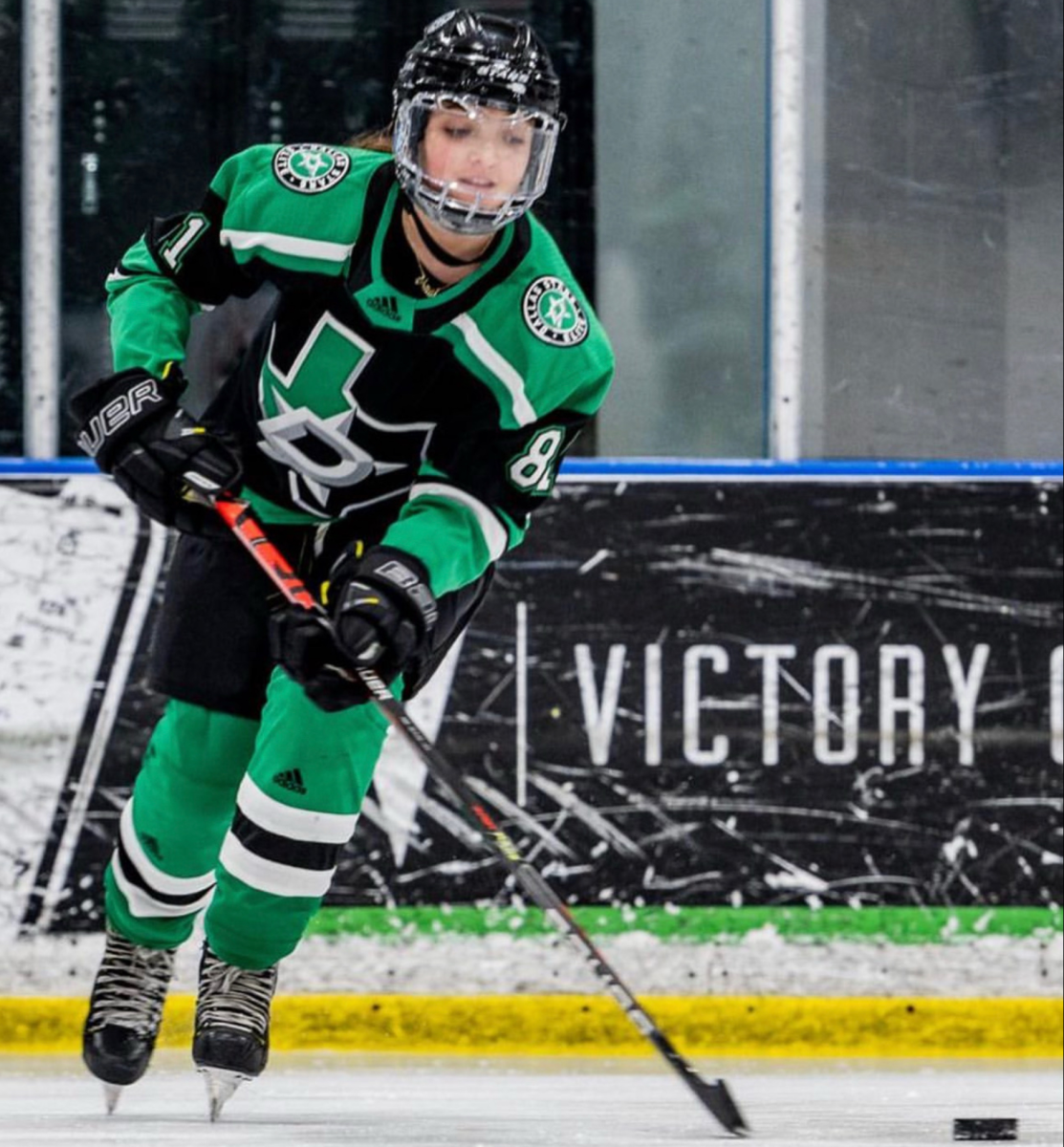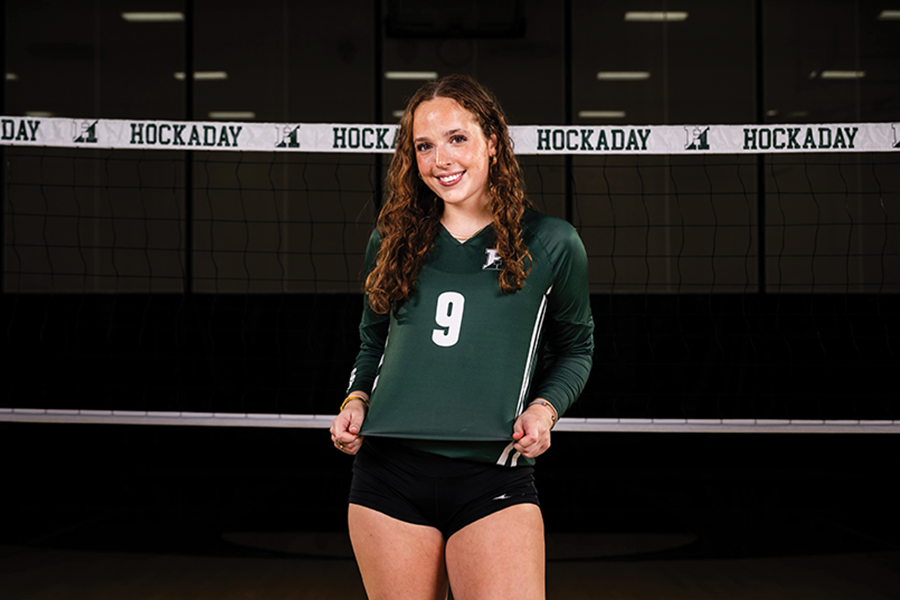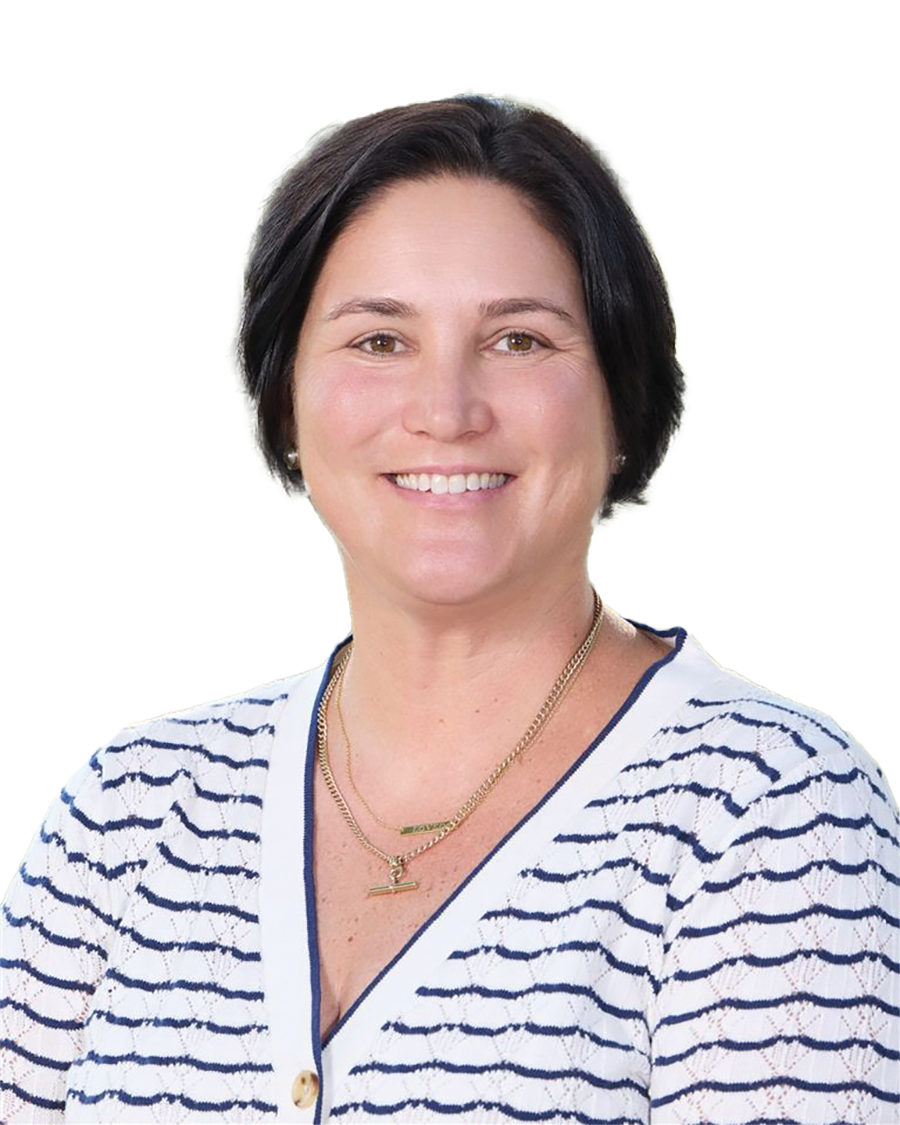During the first set of the match against the Episcopal School of Dallas during the Southwest Preparatory Conference tournament, the Hockaday varsity volleyball team remained in serve-receive for four points. Senior and captain Madison Camper, frustrated with the team’s performance, peered down at her hand. Although no physical green dot existed on her left hand, Camper remembered the advice of Athletic Director Tina Slinker: take a deep breath, remain positive and return to your “green zone.”
Immediately, Camper dispelled her own frustration and signaled to the team to meet in the center of the court for a quick pep talk. She reminded her fellow players to focus on this next point, rather than the four points the team had just lost.
After the players returned to their positions, the Hockaday volleyball team won the next point and, eventually, the first set.
Camper credited this leadership technique to Slinker, who explained the “green dot method” during the first meeting of the captain’s council, a body comprising all eight captains of the four fall varsity sports teams.
With curriculum from Jeff Janssen’s “The Team Captain’s Leadership Manual,” Slinker met with the captains two to three times during the fall season over lunch and led them in a guided and confidential discussion about the challenges they face and ways to overcome those hurdles.
Slinker first worked with captains on their leadership skills while serving as the head coach of the University of North Texas’ women’s basketball team, a position which she held from 1989 to 2008. Every year, Slinker would purchase Janssen’s book for her captains and would discuss the material along with possible ways to improve their skills as leaders.
“I realized that it was important to not just tell somebody they are going to be a captain but to talk about the aspects of what is involved and that it is a hard job and that there are different ways that they can really impact their teams,” Slinker said.
Slinker attributed this program with opening up a healthy dialogue between herself and the captains as well as providing these captains with the skills necessary to serve as effective leaders on the team.
The success of this program prompted Slinker to develop a similar program at Hockaday in her second year working as the Athletic Director during the 2009-2010 school year. However, the program, which brought together the captains of all the varsity teams in each season, lost steam after two years until Slinker reinvigorated the program seven years later.
In her first year of restarting this captain’s council, Slinker has two main goals.
“I hope the handful of captains that I have feel like they are being supported by the athletic director,” Slinker said. “I hope it helps them to lead better and not feel alone in that leadership.”
Camper acknowledged the need for a more supportive community between the sports teams.
“It is really good to see how other teams are doing because at this school, we don’t really go to each other games,” Camper said.
However, ever since the captain’s council began to meet, Camper noted that athletes from other teams have come to support the volleyball team during their games and that a more unified community has begun to develop. The various fall teams have even started working out together as a way to foster more solidarity.
Senior and varsity field hockey co-captain Genny Wood appreciated these meetings because she learned she was not alone in many of the struggles she faced as a captain.
“It was interesting to see how completely different sports face the same challenges with being captain,” Wood said. “One that everyone could relate to was being a leader on your team to girls who are very similar age to you.”
Camper struggled with the same challenge on the volleyball team. These meetings actually provided her with strategies to combat this issue, which she implemented with her own team.
Camper also enjoyed these meetings because she learned effective leadership strategies which she implemented with her own team. Her own volleyball team struggled with respecting authority, and Camper solicited suggestions during the first captain’s council meeting.
“We wouldn’t have done this if we hadn’t gone to the meeting, but we actually talked to our coach about it and he addressed the whole team. I think that really helped us to do so well,” Camper admitted.
With the last meeting a week before the fall SPC tournament, the captains shared advice for the upcoming competition.
Wood, whose lacrosse team has entered the tournament as the top seed for the past several years, had the opportunity to provide some guidance on the challenges of entering the tournament as the highest ranked team.
“I gave them the advice that is really scary going in as top seed because there is so much pressure on you, but you just have to play your game and not worry about living up to expectations,” Wood said.
Although the volleyball team did not win the tournament, the advice helped Camper focus on her own team’s performance, rather than that of other teams.
“Overall I think that the team played amazing at SPC; it was the best I had seen us play all season. Even though we didn’t win it all, I still think we made a huge improvement in rankings,” Camper said.
Slinker hopes to continue this program and looks forward to meeting with the winter captains.
“I felt like there is a real value in it. I felt like it could be a positive support of captains going forward,” Slinker said. “I walked away very proud of those girls and the leadership they have as difficult as it can be and their openness to share their own weakness.”
Story by Mary Orsak, Magazine Editor
Photo by Kate Woodhouse






